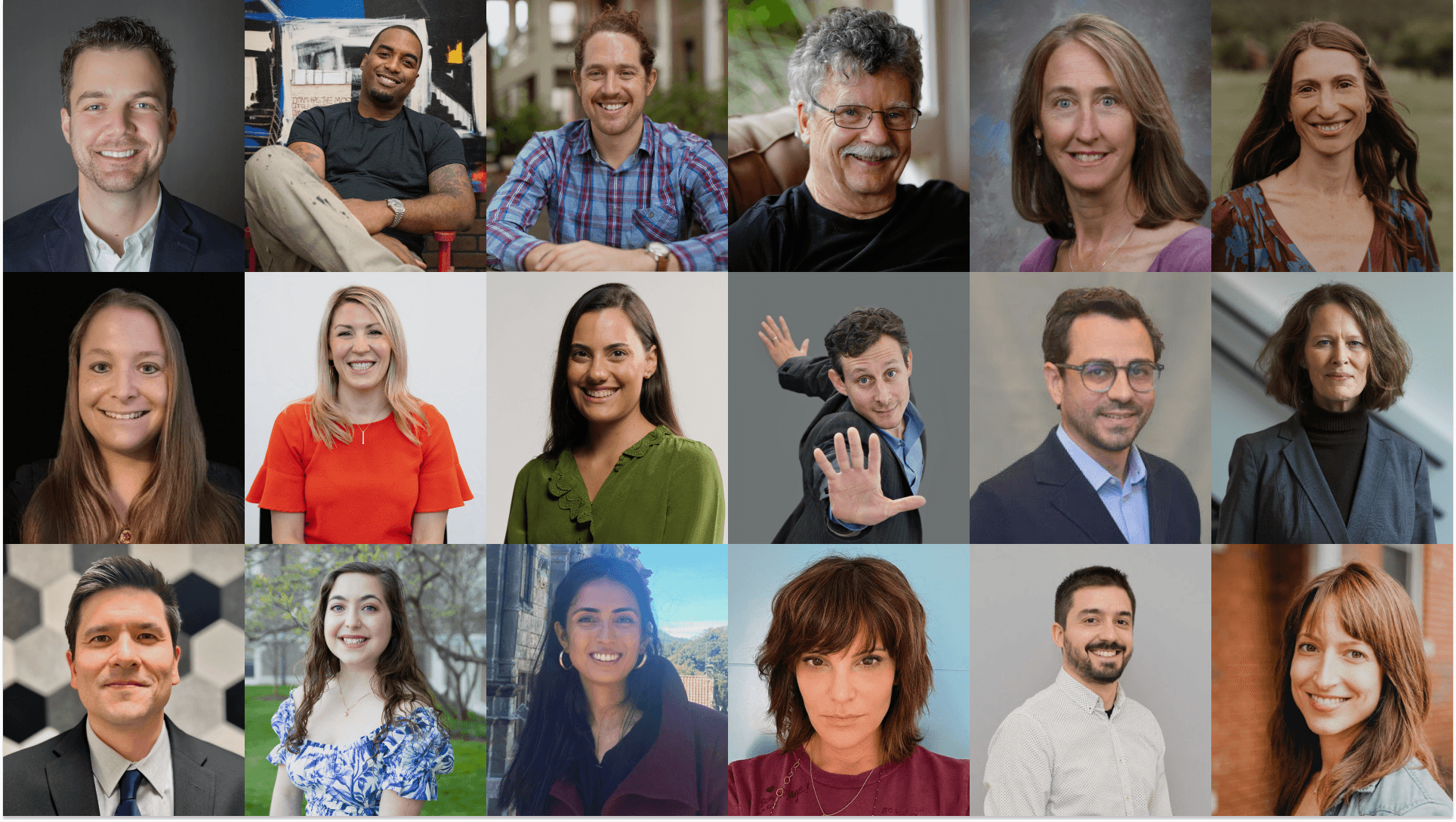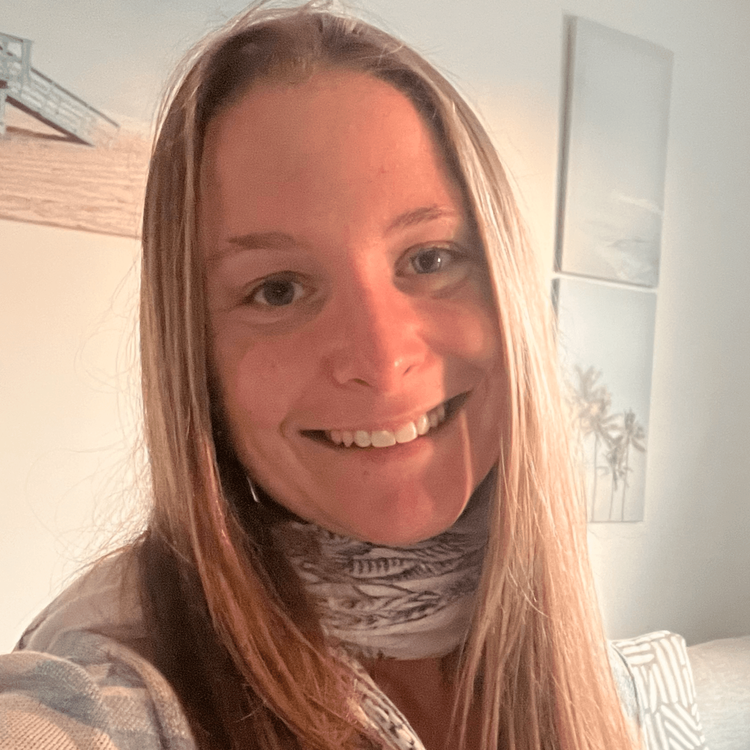Announcing the 2025 Renée Fleming Neuroarts Investigator Awards Recipients


Second Annual Awards Given to Researchers in the Emerging Field of Neuroarts
Researchers exploring innovative intersections between arts and health—from examining the effects of choral singing on individuals with Alzheimer’s to arts' impact on youth who have experienced trauma—are receiving critical support through the second annual Renée Fleming Neuroarts Investigator Awards. At a time when scientific innovation faces unprecedented challenges, these awards highlight the vital role of interdisciplinary research in advancing our understanding of how all art forms can influence health and wellbeing.
The awards, established by the Renée Fleming Foundation and administered through the NeuroArts Blueprint Initiative, a partnership between Johns Hopkins University and the Aspen Institute, support early-career investigators working across sciences and the arts to advance the emerging field of neuroarts. Neuroarts is an interdisciplinary field, rooted in the science of neuroaesthetics, which explores how the arts and aesthetic experiences change the brain, body, and behavior and how this knowledge can be applied to advance health and well-being."
This awards program continues to reflect my commitment to fostering inquiry and collaboration among young scientists and artists, especially at a time when innovative research needs our strongest support,” said Renée Fleming. “By nurturing the imaginative spirit that propels the neuroarts field, we're not just advancing scientific discovery and interdisciplinary research but also equipping the next generation of researchers to make a strong case for its transformative power.” Soprano and author of the anthology Music and Mind: Harnessing the Arts for Health and Wellness, Fleming is co-chair of the NeuroArts Blueprint Advisory Council, an inaugural member of the World Economic Forum’s Global Arts and Culture Council, and Goodwill Ambassador for Arts and Health for the World Health Organization.
Susan Magsamen, executive director of the Johns Hopkins International Arts + Mind Lab Center for Applied Neuroaesthetics, who also co-directs the NeuroArts Blueprint Initiative, noted, “By investing in these researchers, we are supporting individual projects while helping to forge new pathways for understanding human resilience and healing. Each team of investigators will be paired with mentors from the field to build on the deep well of existing expertise and expand its impact. These bright, promising arts and science investigators are the future of the field.”

The nine funded projects include early career collaborators from both the science and arts sectors; each team will receive an award of $25,000. The research projects represent a range of innovative methodologies across diverse art forms to address core health and well-being issues:
- Investigating the impact of a trauma-informed collective arts project on youth self-awareness, social connection, and empowerment: Stephen DiDonato, PhD, LPC, NCC, a trauma-informed systems researcher at Thomas Jefferson University, and Raheem “King Saladeen” Johnson, pop art and graffiti artist, are co-principal investigators who will utilize qualitative methods to examine how collective art sessions with middle school students, including those from diverse backgrounds, influence their social and emotional well-being.
- Researching the predictors of flow states during painting in older adults and how these states influence their well-being: Denis Dumas, PhD, a psychologist at the University of Georgia Research Foundation, and Stewart Cubley, a visual arts educator at the Institute for Art and Living, are co-principal investigators who will utilize experience sampling methodology to examine how personality, motivation, and cognitive capacity relate to flow states during a week-long painting workshop, with a sample of approximately 60 participants averaging 65 years of age.
- Integrating neuroarts into nursing curricula to address the nursing professions’ mental health crisis and improve patient care outcomes: "The Dancing Nurse" project, led by Lucy Graham, PhD, MPH, BSN and Tara Rynders, MFA, BSN examines the impact of neuroarts-based interventions (dance, play, and poetry) on nursing students' well-being at Colorado Mesa University to assess how these interventions reduce burnout, secondary traumatic stress, and isolation while fostering resilience, self-compassion, and a sense of belonging.
- Exploring the effects of community-based choral singing on individuals with Alzheimer’s Disease and Related Dementias and their caregivers: Florida Atlantic University’s researchers Patricia Izbicki, PhD and Eyleen Braaten, MPP will employ a pre-post, single-arm design with mixed-methods assessments across 25 rural communities to investigate how structured musical engagement influences cognitive function, emotional well-being, and social connectivity.
- Investigating the neural underpinnings of a dance-based intervention in Parkinson’s Disease: Constantina Theofanopoulou, PhD at The Rockefeller University and David Leventhal from Mark Morris Dance Group will use functional Magnetic Resonance Imaging (fMRI) to compare brain activity in individuals with Parkinson’s Disease before and after a 12-week dance program, to elucidate the neural effects of dance versus walking and to evaluate the intervention's impact on motor, cognitive, speech, and psychosocial behaviors.
- Studying the impact of classically trained singing on brain organization in Parkinson's Disease: Giovanni Battistella, PhD, and Kristin Norderval, PhD, DMA, researchers working at Harvard University-affiliated Massachusetts Eye and Ear, will use Magnetic Resonance Imaging (MRI) to compare voice production networks in professional classically trained singers with and without PD in order to identify neural markers related to intensive vocal training, potentially aiding in interventions for PD-related voice symptoms.
- Researching the translation of music therapy into a self-administered digital therapeutic for depression and anxiety in young adults: Daniel Bowling, PhD at Stanford, and Sarah Fogler, MS, MT-BC, LCAT-LP, a music therapist at the Institute for Music and Neurologic Function, will develop and test a novel music-based intervention, combining music therapy principles with neuroscience, to enhance access to music’s therapeutic effects.
- Exploring the potential of music to reduce neural polarization and restore balanced brain function: Akila Kadambi, PhD at the University of California, Los Angeles and Anne Preven, a songwriter, musician, and record producer, will use brain imaging to measure neural synchrony across genre experts and those with contrasting genre expertise to determine if shared musical preferences produce more synchronized neural responses and whether exposure to unfamiliar genres can align polarized neural responses.
- Examining the impact of Nordoff-Robbins Music Therapy (NRMT), which uses improvisation to facilitate music engagement, on social motor synchrony (SMS) and social communication in autistic children: Pablo Ripollés, PhD, an expert in music cognition and neurophysiology, and Anna Palumbo, LCAT, MT-BC, a music therapist, both from New York University, will use wearable technology to continuously measure SMS and pre- and post-intervention assessments of social communication.
“This year, we were thrilled to receive nearly twice the number of applications over last year. It is clear that these challenging times have not dampened interest in deepening the evidence base to explain how music, dance, theatre, visual arts, and so many other art modalities influence health,” said Eric Nestler, neuroscientist and Director, Friedman Brain Institute at Icahn School of Medicine at Mount Sinai, who co-chaired the independent blue-ribbon committee that evaluated the award proposals.
“The Renée Fleming NeuroArts Investigator Awards reflect the growing movement toward collaborative research across the arts and sciences. It is exciting to see how scientific and artistic innovation can ignite progress in enhancing human wellness," said Anna Deavere Smith, actor, playwright, and University Professor at New York University’s Tisch School of the Arts, who also co-chaired the awards review committee.
“We thank our stellar review committee for their tireless work in recommending projects that truly reflect the vision of the NeuroArts Blueprint Initiative,” added Ruth J. Katz, executive director of the Health, Medicine & Society Program at the Aspen Institute, who also co-directs the Initiative. “The work will allow us to advance our overall mission of building the neuroarts field so that the arts become part of mainstream medicine and public health.”














